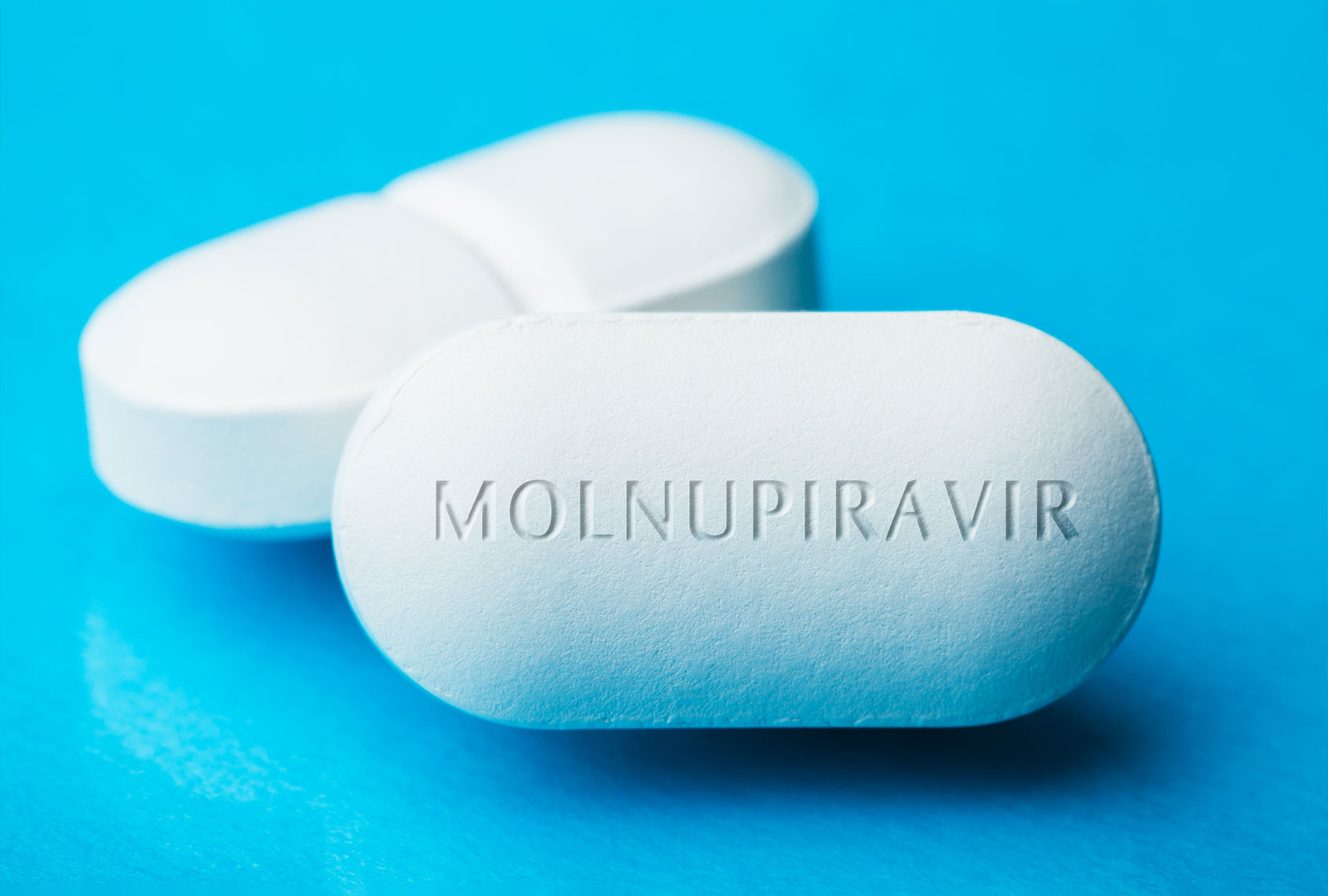Imagine if an unvaccinated person with COVID-19 could go to the pharmacy and get a pill that could reduce their risk of dying from COVID-19 by 50 percent. This scenario could drastically reduce the number of needless COVID-19 mortalities, and it could become a reality as soon as 2022.
On Monday, pharmaceutical company Merck & Co. announced that it submitted its application to the U.S. Food and Drug Administration for emergency use authorization of the first antiviral pill targeted to treat COVID-19. If approved, the pill — called molnupiravir — could be a major milestone in ending the pandemic as an effective at-home treatment option.
The concept behind the drug is that those with high-risk conditions could take the pill to prevent their COVID-19 case from worsening and progressing to hospitalization or death. According to an announcement by the company earlier this month, the results in its clinical trials cut hospitalization and death by 50 percent in patients who had at least one high-risk factor for COVID-19.
“More tools and treatments are urgently needed to fight the COVID-19 pandemic, which has become a leading cause of death and continues to profoundly affect patients, families, and societies and strain health care systems all around the world,” said Robert M. Davis, chief executive officer and president of Merck & Co. in a statement. “With these compelling results, we are optimistic that molnupiravir can become an important medicine as part of the global effort to fight the pandemic.”
Indeed, the pill’s clinical trial results are quite compelling, though they have yet to be peer-reviewed and published. According to the company’s news release, its late-stage clinical trial was so successful that it stopped enrolling subjects after discussions with the U.S. Food and Drug Administration. Based on the participants with available viral sequencing data (approximately 40% of participants), molnupiravir was consistently effective in treating the variants gamma, delta, and mu. Similarly, the side effects were comparable among patients who received the drug and those in a testing group who received a placebo pill. Merck has not publicly detailed the types of problems reported, but they will likely be an important part of the FDA’s review.
Want more health and science stories in your inbox? Subscribe to Salon’s weekly newsletter The Vulgar Scientist.
The Phase 3 study enrolled more than 1,400 unvaccinated people who were at high risk of becoming seriously ill; risk factors included obesity, diabetes, or being over the age of 60. About half of those enrolled received an 800-milligram dose of molnupiravir twice a day for five days. The remainder of participants received a dummy pill. Treatment began within five days after the trial participant developed COVID-19. Only 28 of the 385 people who received the drug were hospitalized; 53 of the 377 subjects in the placebo group who were either hospitalized or died. Nobody who received molnupiravir within the 29 days died, while 8 people in the placebo group died.
The pill is part of a class of antiviral drugs called nucleosides, which stop a virus from replicating inside a person’s cells. This particular pill creates mutations in the part of the genetic code that is responsible for the virus replicating itself, causing the virus to eventually die out.
“That is what we term lethal mutagenesis,” Richard Plemper, a virologist at Georgia State University, recently explained to Nature. “The virus essentially mutates itself to death.”
As far as cost goes, it remains unclear how accessible such a treatment would be to the U.S. and the world. Assuming FDA authorization, the U.S. government has agreed to purchase enough of the pills to treat 1.7 million people at a price of roughly $700 for each course of treatment, according to AP News.
“We set that price before we had any data, so that’s just one contract,” said Dr. Nicholas Kartsonis, a senior vice president with Merck’s infectious disease unit, in an interview with AP News. “Obviously we’re going to be responsible about this and make this drug as accessible to as many people around the world as we can.”
The drug will likely be available as a prescription at pharmacies, and wouldn’t be prescribed for everyone at first— just those who are unvaccinated, and have at least one condition that puts them at a high risk of severe COVID-19.
The process for FDA approval for emergency use authorization will likely take weeks, but it could happen before the end of the year. Once it happens, it could be a game changer for the pandemic — particularly during the winter, as cases are expected to increase among the unvaccinated.
To date, the FDA has fully approved just one treatment for COVID-19, the antiviral remdesivir. However, unlike the pill pending authorization, remdesivir is administered via injection and has been found to shorten recovery time for hospitalized patients.
“If you can stop the virus before it makes someone very sick, then it’s a game-changer,” Dr. Mike Ryan, executive director of the World Health Organization’s Health Emergencies Program, said during a Facebook Q&A earlier this month.
Regardless, top U.S. health officials continue to advocate for vaccinations as the best way to protect against COVID-19.
“It’s much, much better to prevent yourself from getting infected than to have to treat an infection,” Dr. Anthony Fauci said last week.
However, nearly 68 million Americans are still unvaccinated. If approved, it will be key to preventing deaths and burdening hospitals with COVID-19 patients.
“The value here is that it’s a pill so you don’t have to deal with the infusion centers and all the factors around that,” Kartsonis, a senior vice president with Merck’s infectious disease unit, told AP News. “I think it’s a very powerful tool to add to the toolbox.”


